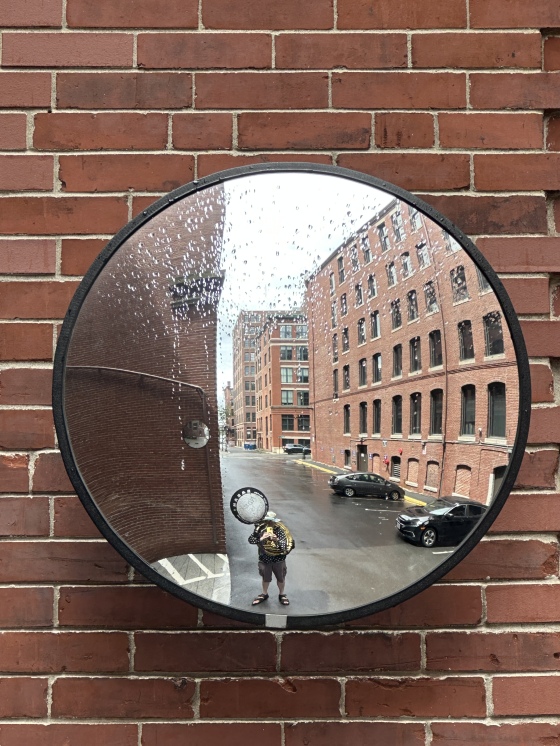2023.07.02

I'm not fully endorsing this view but I think it's thought-provoking...
Here's what I suspect: mentally healthy people, if they still exist, aren't healthy because of the constant presence of positive feelings of self. They are healthy because of the habitual absence of any feelings of self at all. (I guarantee you this is already a thing in psychology or some 19th century German philosophy but it's proving stubbornly resistant to my Googling.) Where we've gone wrong as a civilization in terms of understanding confidence is in thinking of it as a presence, as an emotion. But I think what we perceive as confidence is simply not constantly thinking about yourself and your value. That's more real and sustainable to me than thinking about yourself all the time and consistently feeling good about what you find. Unfortunately it seems like not thinking about yourself is what many modern people find hardest of all.Personally my guess is that the problem is people getting driven by too much raw emotion connected to how they want the world to be different (sometimes themselves included). I'm not sure I fully avoid "thinking about yourself and your value" - but when I do consider myself in an evaluative way, it's with a weird dose of "fixed mindset" that assures me I'm an ok mix of smart, funny, and capable, and that's not going to change (but! In return I shouldn't look too hard for where my limits actually are - that's my deal with my "positive fixed mindset devil").
UPDATE: On FB Nick (who has a set of challenges based on his albinism) sent me this HealthyGamer_gg video, and I wrote back:
Yeah, that's a pretty good video. Like when I think of what knocked me down a few levels - not getting into a high school NASA internship, swinging and missing with getting into the top of the Ivy league (only swung because of their invitations probably based on SAT scores), chasing an intermittently requited big romance in college (another mindful big swing but then I couldn't let go of the bat or whatever the metaphor is), a few chewing outs at work for slacking off (mostly slacking because of anxiety about the task showing the limits of my competence)... those are all specific events that were those nuggets of trauma it talks about.
But here's the thing - the video focuses on where the lost confidence doesn't have its roots in reality (like the "wet butt" water bottle mocking example) but, sometimes the traumatic event really has its basis in reality. And so I think the problem is acceptance of what those limits are, along with some confidence that you can muddle through whatever happens, and through mindfulness still find parts to enjoy and savor. Not getting too emotionally attached to outcomes you would hope for, I think that's the most important part of the non-attachment a Buddhist might encourage.
And it's a balance, because a dose of somewhat naive optimism - sometimes (but not always) less grounded in reality than the depressive "why bother" - is a good motive force. But like I get you - like for me "it's better to try and fail" seems like bunk, because "not trying and not succeeding" gets about the same results (except for not providing practice) but is much easier on the ego.







